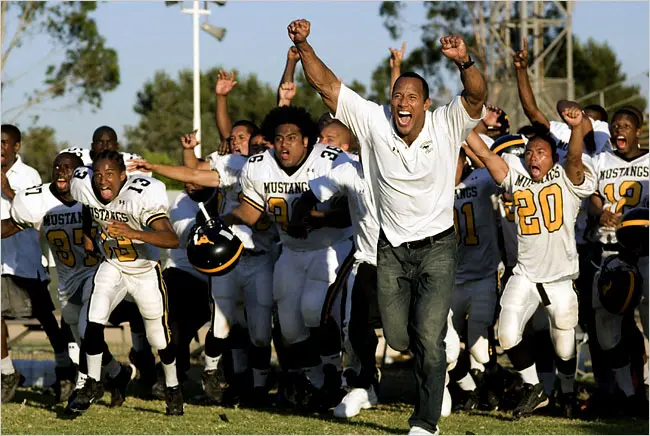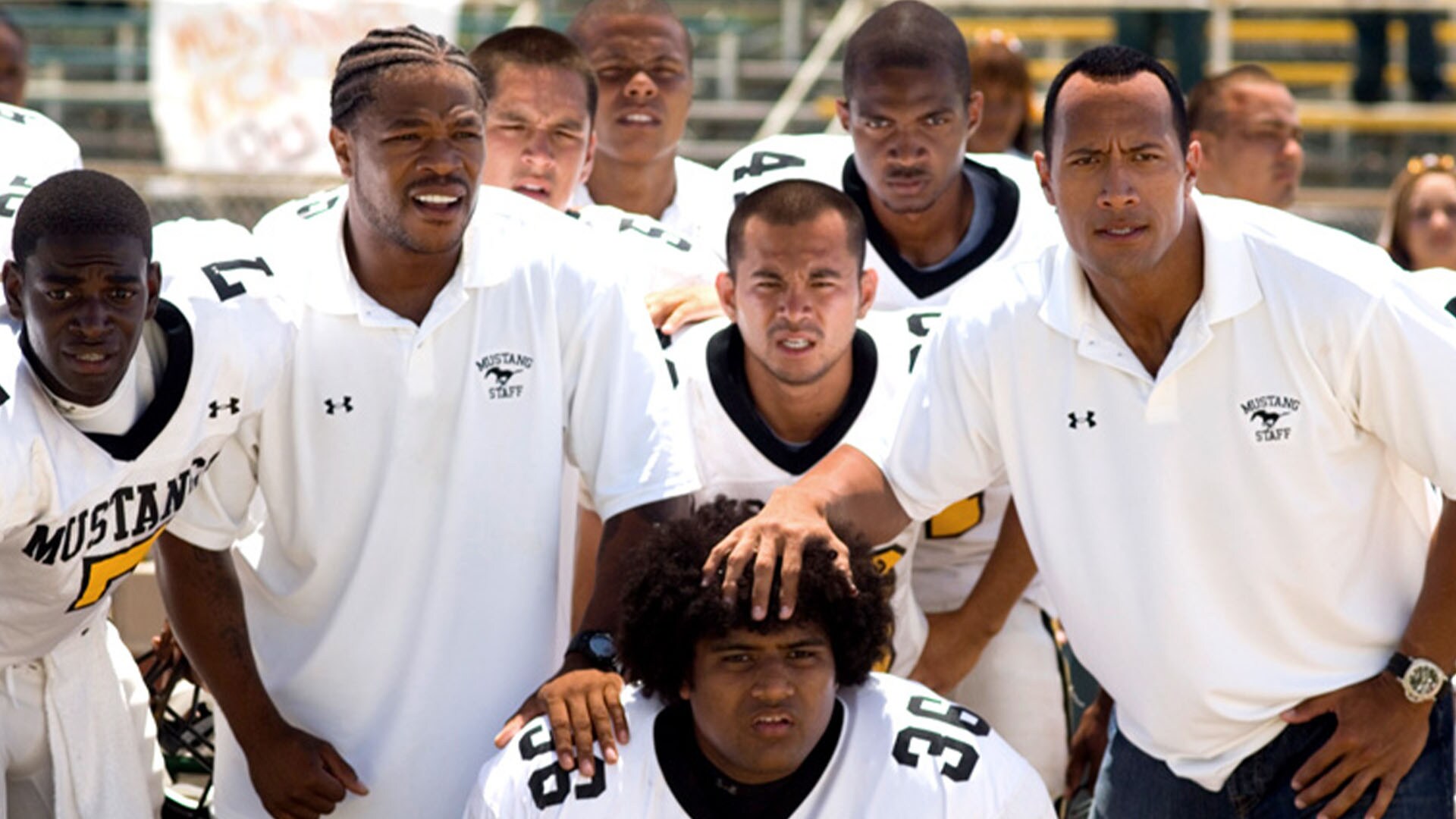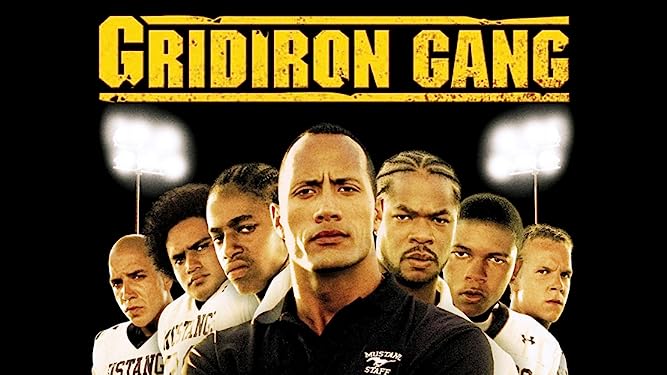Gridiron Gang, directed by Phil Joanou, is an uplifting sports drama set in a juvenile detention center in Los Angeles, California. The 2006 film follows Coach Sean Porter (Dwayne Johnson), who is determined to make a positive impact on the troubled teenagers at Kilpatrick Detention Center. Recognizing the need for guidance and belonging, Porter forms a football team, believing that the sport will instill discipline and responsibility in the young residents, ultimately changing their lives for the better.
Gridiron Gang Plot Synopsis
While initially skeptical, the teenagers soon find joy in their newfound camaraderie. However, their journey is far from easy, as they encounter numerous obstacles and hardships along the way. Gridiron Gang delivers a motivational experience that showcases Dwayne Johnson’s talent, keeping the audience captivated and rooting for the team’s success.
Is Gridiron Gang based on a true story?
Yes, Gridiron Gang draws inspiration from real-life events. The movie is based on the experiences of Camp Kilpatrick, a Los Angeles County-based juvenile detention center, and its football team, the Kilpatrick Mustangs, during the 1990 season. Interestingly, the team was previously featured in a documentary that shares the same name as the Dwayne Johnson-led film, which won an Emmy Award in 1993. While there are some differences between the movie and reality, the core story remains rooted in actual events.

In reality, Camp Kilpatrick’s sports program began in 1986 with the formation of a basketball team. Sean Porter became involved in 1988 and helped establish an eight-person football team, although they did not initially compete against other schools. It wasn’t until 1990 that the team expanded to eleven players and played a full season against other educational institutions. The challenges faced by the Mustangs in the movie were reflective of the difficulties encountered by the real Kilpatrick team.
The Mustangs faced scheduling issues and struggled to find opponents willing to play against them, particularly in their first season. However, several schools recognized Kilpatrick’s vision and embraced the opportunity to compete against the team. After their inaugural season, more schools expressed interest in playing the Mustangs, impressed by the positive impact the team and Coach Porter had on the young players.
Emotional Moments and Real-life Resonance
One of the film’s most poignant scenes depicts the Mustangs crying after their first loss, mirroring a true-life event. This moment humanizes the teenage players and showcases their vulnerability. Another authentic scene depicts the Mustangs presenting Coach Porter with flowers following the mid-season passing of his mother.
In reality, Sean Porter didn’t expect his team to win a single game. His focus was on teaching the players the importance of accepting challenges and personal growth rather than fixating on winning or losing. To prepare for his role, Dwayne Johnson turned to the 1993 documentary to gain insight into Porter’s character and approach.

Coach Sean Porter had limited involvement in the making of the film, but his presence on set allowed for valuable exchanges with Johnson. Porter expressed concerns about certain players, like Junior Palaita, who had a troubled past. Despite Palaita’s transformation and reintegration into society, Porter worried that the movie’s portrayal of his former life could lead to him being judged and excluded.
At the time of the movie’s release, some of the Kilpatrick Mustangs were completing their education, while two others were reportedly incarcerated. These circumstances reflect the success of Porter’s methods and explain why the 1990 Mustangs team became the subject of two on-screen productions. Gridiron Gang not only stays true to the real-life events but also presents a heartwarming and inspirational story of triumph.
In conclusion, Gridiron Gang is a powerful and inspiring film based on the true story of a football team’s transformative journey within a juvenile detention center. The movie captures the essence of hope, resilience, and the positive impact sports can have on the lives of troubled youth. Through its authenticity and uplifting narrative, Gridiron Gang continues to resonate with audiences, reminding us of the potential for change and redemption in even the most challenging circumstances.










